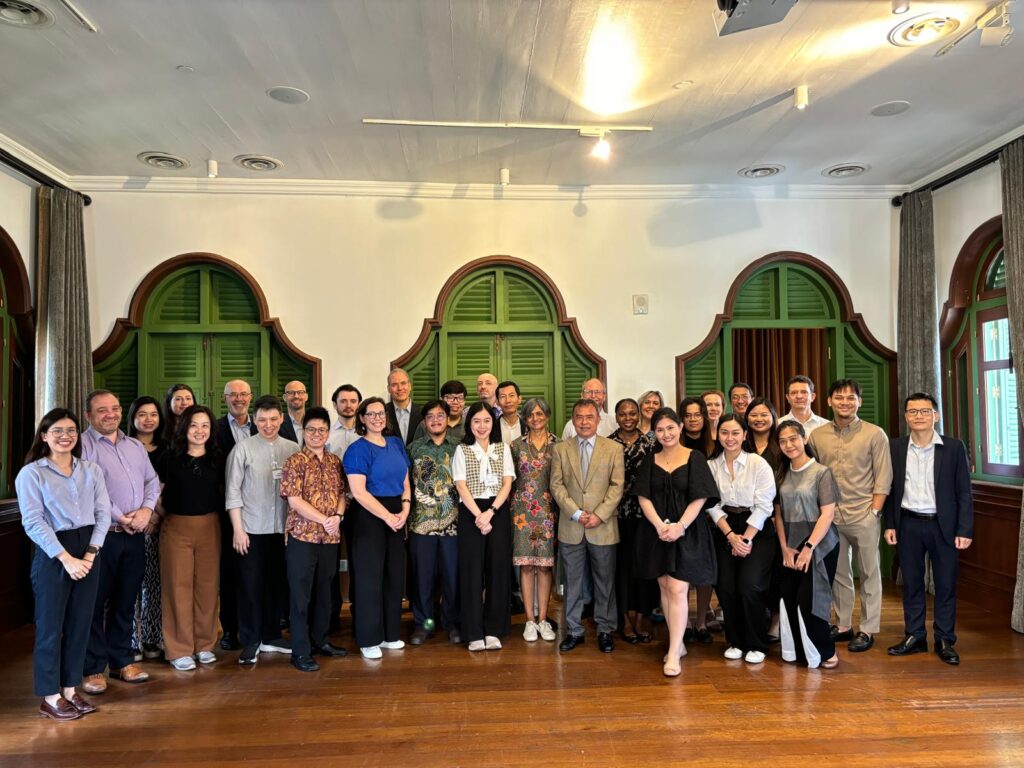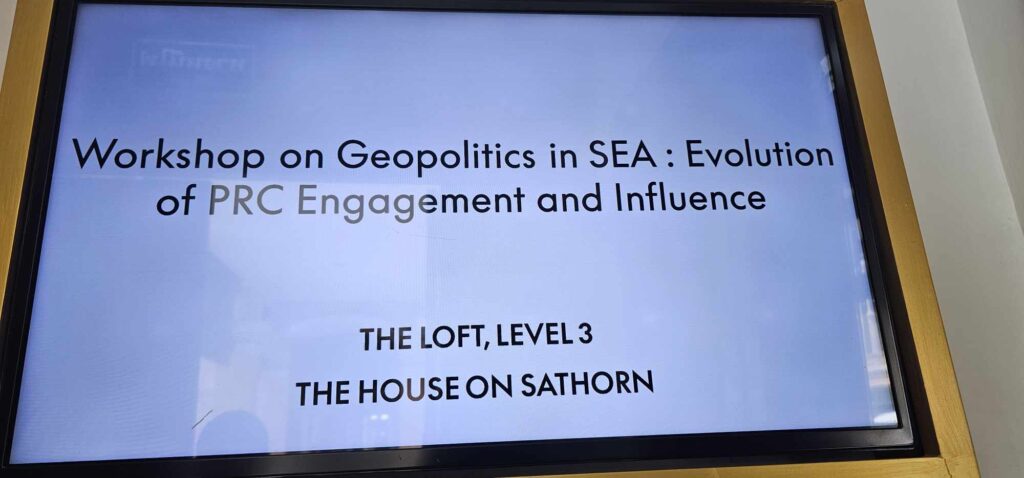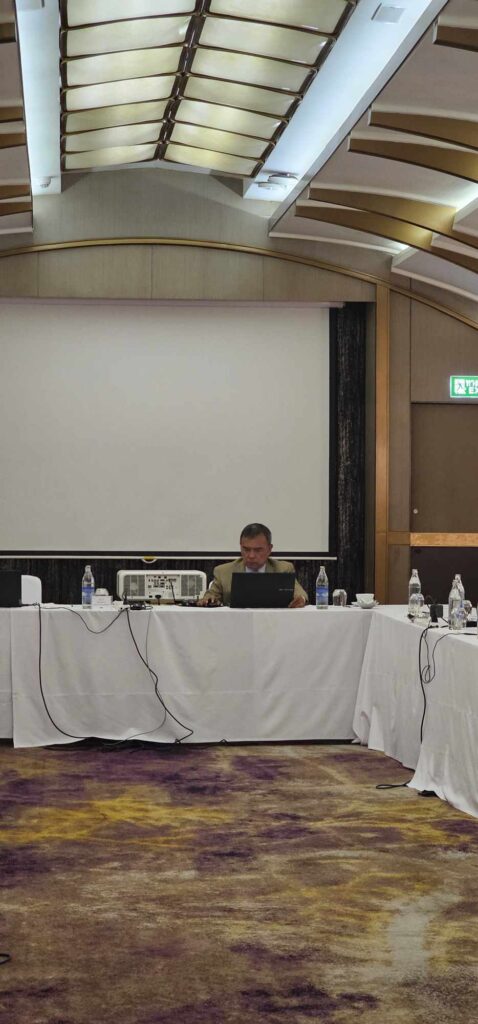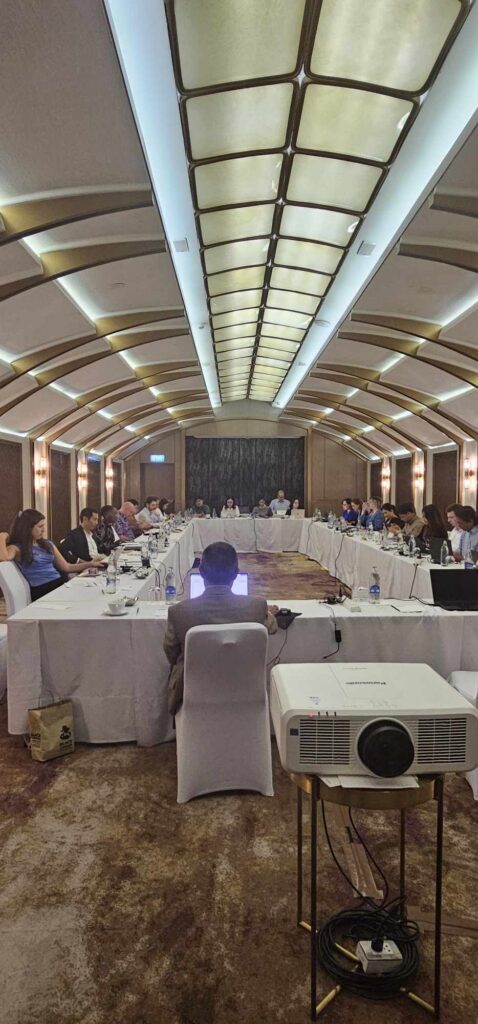From 3 to 4 March, 2025, Ambassador Pou Sothirak, Distinguished Senior Advisor to the Cambodian Center for Regional Studies was invited to take part in a workshop entitled “Geopolitics in Southeast Asia: Evolution of PRC Engagement and Influence” organized by the Asia Foundation with the support from the United Kingdom’s Foreign, Commonwealth & Development Office (FCDO) in Bangkok, Thailand.
The purpose of the Workshop is to increase participants’ awareness and understanding of:
• The changing geopolitical environment in Southeast Asia and its impact on domestic and international policy for regional states, China, and the UK.
• China’s engagement and influence in the region and its policy implications for Southeast Asian countries and the UK across a range of thematic areas.
While there were substantive presentations by various experts and scholars, Amb. Pou Sothirak’s presentation cover: (1) a quick review of ASEAN’s performance, (2) a general observation about China’s rise, (3) the interaction between ASEAN and China, (4) ASEAN between US and China Rivalry, and (5) consideration to enhance ASEAN Centrality in Navigating the US and China Rivalry.
Some of key takeaways from Amb. Pou Sothirak’s presentation on point number 5 above include:
1. ASEAN must avoid leaning too deep into China’s economic bounty and the need to continues to open the region for the U.S. military presence in the region to guarantee regional stability and security.
2. Southeast Asian states ought to come up with a bolded strategy that could engage both powers smartly but prudently.
3. ASEAN need not to get entwine with the manner through which the US and China compete with each other while going after their national interest respectively nor provoke them to go against one another on how to resolving hard security issues such as the SCS issues, the Myanmar crisis, the Ukraine war, the Cross Strait relations.
4. On strategic issue of the Code of Conduct in the South China Sea, ASEAN and China need to focus on resolving challenges for biding and credible code.
5. ASEAN must find suitable multilateral mechanism to constrain or help manage the U.S. and China rivalry.
6. ASEAN should continue to engage the US and China through existing ASEAN frameworks, even if there are limitations in terms of what can be accomplished.
7. In dealing with both the U.S. and China, ASEAN Member States must manage their inherent differences quietly so as to foster stronger intra-ASEAN unity and strengthen its centrality.
8. While engaging China in security dialogue, ASEAN should capitalize on its strategic role to encourage China to adhere to the promise that its rise is indeed peaceful and beneficial to region and urge China to work toward collective resolve to find peaceful solution to the South China Sea issues.
In addition, Amb. Pou Sothirak discussed the excellent bilateral relations between Cambodia and China. Cambodia sees China as a means of bringing economic development and guarantor of Cambodian security amidst historical baggage with neighboring countries. On economic front, Cambodia continues to dependent on China for investments and development assistance. On security and strategic front, Cambodia has leveraged its relations with China to counter any potential security threats from its larger neighbors. China also sees Cambodia a loyal ally and strategic partner that can open up the country for China’s oversea investment, the source of raw materials, and a leverage to protect China’s core interests.
He also discussed challenges faced by Cambodia while engaging China. Cambodia needs to recalibrate the trade imbalance with China, open up potential Cambodia’s competitive advantage on strategic infrastructure projects to other reliable powers other than China, ensure that any large-scale investments from China are inclusive, sustainable and trigger down to the base. Most importantly, Cambodia should manage the existing excellent relationship with China in the best way so as not to affect the relationship the country has with other powers in the region and beyond.




